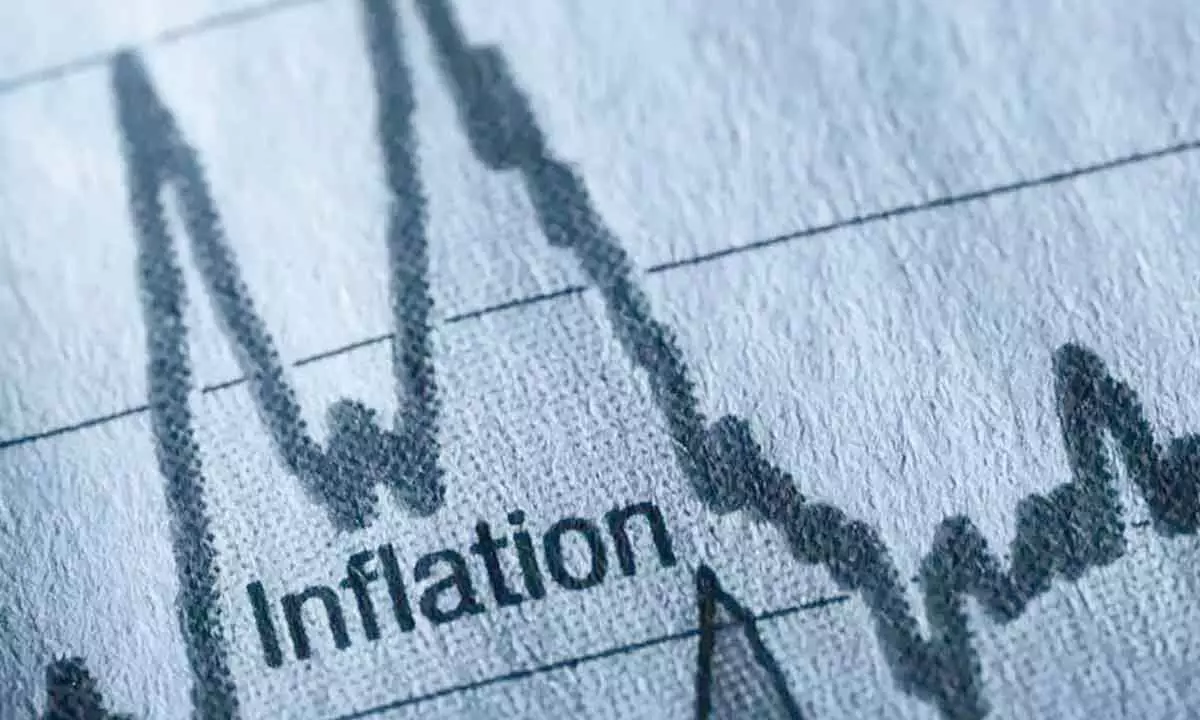India's retail inflation softens to 6.71% in July, lowest since March
Retail inflation moderated to 6.71 per cent in the month of July, the retail inflation is July has come down from 7.01 per cent in the month of June. Even Reuters poll of 48 economists showed inflation, as measured by the consumer price index, likely to fall to an annual 6.78 per cent in July, a five-month low, from 7.01 per cent in June. The July retail inflation level is in consonance with the projection and expectations of economists.
image for illustrative purpose

Retail inflation moderated to 6.71 per cent in the month of July, the retail inflation is July has come down from 7.01 per cent in the month of June. Even Reuters poll of 48 economists showed inflation, as measured by the consumer price index, likely to fall to an annual 6.78 per cent in July, a five-month low, from 7.01 per cent in June. The July retail inflation level is in consonance with the projection and expectations of economists.
"CPI headline inflation for July has moderated in line with our expectations led largely by food inflation while the core inflation remains elevated and sticky. The coming few readings are expected to be a tad above 7 per cent with inflation likely to hover above RBIs upper threshold limit of 6 per cent until January 2023. We expect Repo rate at 6 per cent by end of 2022 followed by a pause and a shift to neutral policy stance," Upasna Bhardwaj, Chief Economist, Kotak Mahindra Bank said.
At 6.71 per cent, July CPI inflation would be above the Reserve Bank of India's (RBI) medium-term target of 4 per cent for the 34th straight month and outside the central bank's 2-6 per cent tolerance range for the seventh consecutive month. Separately, India's factory output, measured through the Index of Industrial Production (IIP), witnessed a growth of 12.3 per cent in June, two separate data released by the Ministry of Statistics & Programme Implementation (MoSPI) showed on Friday.
Food inflation showed a month-on-month fall during July to 6.75 per cent, from 7.75 per cent in June, the release showed. The prices of vegetables also rose 10.90 per cent in July, in addition spices, cereals and products prices also inched up in July.
"Food inflation eased more than expected to 5-month low of 6.7 per cent YoY. While most food items eased last month, inflation in 'cereals & products' rose to 8-year high of 6.9 per cent (barring Apr-Jun'20 period). Imported inflation also eased to 13.3 per cent, implying that domestically generated inflation eased to 5-month low of 5.9 per cent last month. Inflation in 'Miscellaneous' category eased to below-6 per cent for the first time since Apr'20. Further, 'services' inflation remained contained at just 5.1 per cent last month, same as in the past two years. A little concerning was the fact that the globally standard measure of core inflation (ex food & energy) rose to 3-month high of 6.3 per cent, lower than its peak of 6.5 per cent in Apr'22, but second-highest since the series is available since Jan'15," Nikhil Gupta, Chief Economist, Motilal Oswal Financial Services said.
Last week, the RBI lowered its inflation forecast for July-September to 7.1 per cent from 7.4 per cent. While an inflation print of 6.7 per cent is well below that figure. In a bid to tame inflation, on August 5, RBI's monetary policy committee raised the repo rate by 50 basis points to 5.4 per cent, meaning interest rates have been hiked by 140 basis points in last three months.
Vivek Rathi, Director-Research, Knight Frank India throwing light on the current inflation level said, "India's headline inflation softened to 6.7 per cent in Jul'22 primarily due to softening of food prices. The increase in fuel inflation despite government measures to curb domestic petrol and diesel prices taken a few months ago, is a concerning factor. Currently, the global crude and commodity prices have corrected, this should further soften inflation in India in the coming months. However, rupee depreciation which increases the import costs and the fall in crop yields due to uneven monsoon this year poses near term risk to inflation in India."
Similar to India, the consumer prices in US rose 8.5 per cent in July from a year ago, a slowing pace from the previous month due largely to a drop in gasoline prices. The consumer inflation jumped 8.5 per cent in July, that was an unexpectedly sharp slowdown from the 9.1 per cent year-over-year inflation rate in June, which was the largest in four decades. On a monthly basis, the consumer price index was flat as energy prices broadly declined 4.6 per cent and gasoline fell 7.7 per cent, according to the Bureau of Labor Statistics. That offset a 1.1 per cent monthly gain in food prices and a 0.5 per cent increase in shelter costs.
"US inflation data at 8.5 per cent in July will be a near-term boost to markets. Many market experts believe that the peaks of inflation and Fed hawkishness are behind us. The next Fed rate hike is, therefore, likely to be 50 bps and not 75bps. This also increases the probability of a soft landing in the US. The near-term texture of the market is likely to be bullish. But this need not sustain for two reasons," V K Vijayakumar, Chief Investment Strategist at Geojit Financial Services said.

